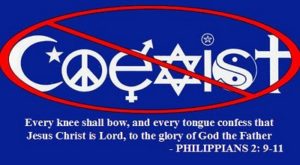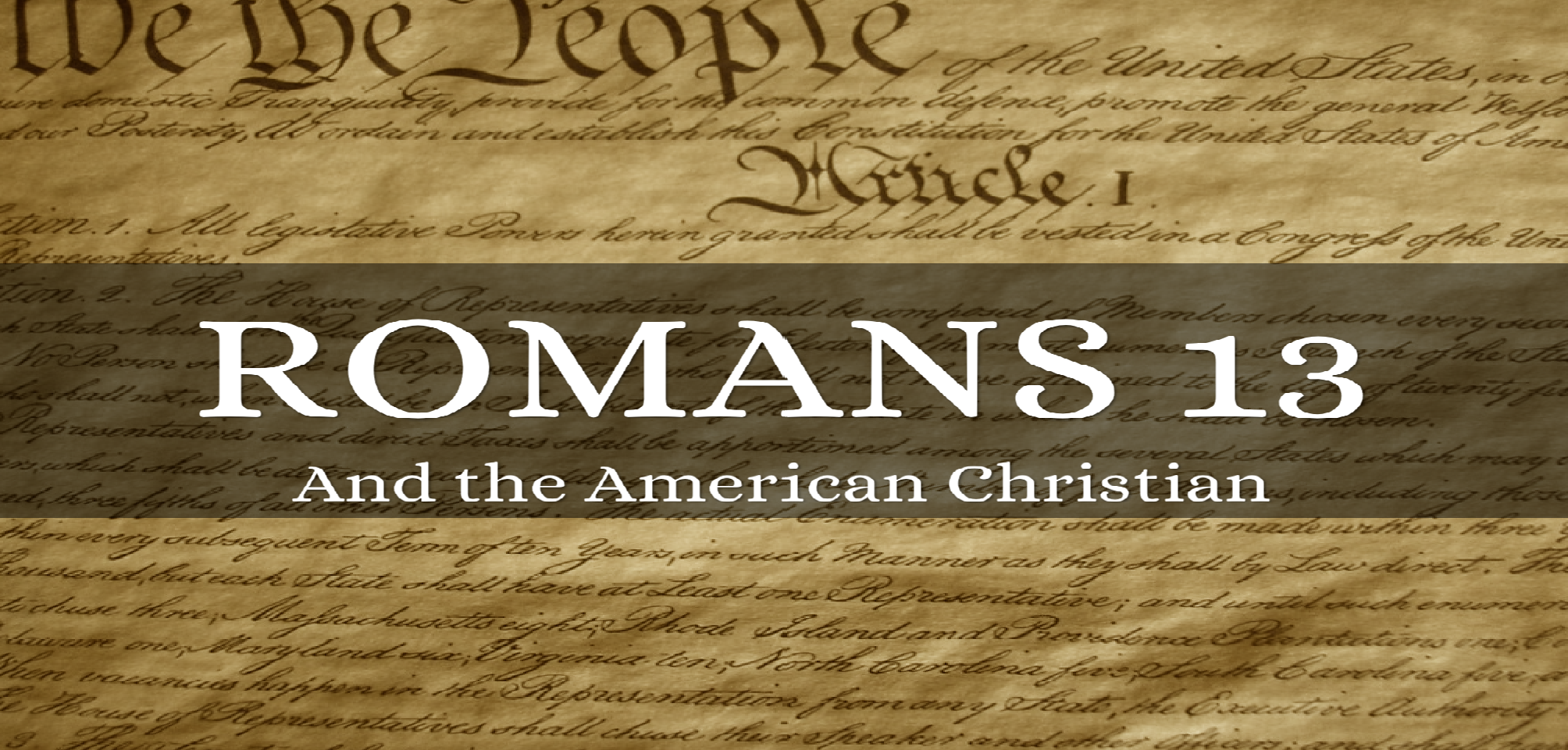Video evangelizing my own cities “Inter-faith” ceremony, at the Hillside Cemetery & my study of Matthew 10:34 beforehand, “Do not think that I came to bring peace on earth. I did not come to bring peace but a sword”
 The last time I engaged in an outreach at this cemetery, was for a police funeral. But today my city, their mayor, and members of their “Area Interfaith Council” hosted this ceremonial event. However since the Lord warned that born-again Christians are not to be unequally yoked with unbelievers (2 Cor 6:14-17), and that we are not to be friends with the world (James 4:4-5, 1 John 2:15-17), then the only way I could justify attending, was to share His glorious Gospel with them. After all, “inter-faith” movements, and religious pluralism is contrary to the Scriptures. Jesus said, “Enter ye in at the strait gate: for wide is the gate, and broad is the way, that leadeth to destruction, and many there be which go in thereat: Because strait is the gate, and narrow is the way, which leadeth unto life, and few there be that find it” (Matthew 7:13-14).
The last time I engaged in an outreach at this cemetery, was for a police funeral. But today my city, their mayor, and members of their “Area Interfaith Council” hosted this ceremonial event. However since the Lord warned that born-again Christians are not to be unequally yoked with unbelievers (2 Cor 6:14-17), and that we are not to be friends with the world (James 4:4-5, 1 John 2:15-17), then the only way I could justify attending, was to share His glorious Gospel with them. After all, “inter-faith” movements, and religious pluralism is contrary to the Scriptures. Jesus said, “Enter ye in at the strait gate: for wide is the gate, and broad is the way, that leadeth to destruction, and many there be which go in thereat: Because strait is the gate, and narrow is the way, which leadeth unto life, and few there be that find it” (Matthew 7:13-14).
Should born-again Christians bring division amongst “inter-faith” events? The answer is a resounding yes, even amongst our own homes.
Usually before I preach in the streets, I study the passage that I will be preaching from. But in this case, I did not go to preach, but before I went, I studied Matthew 10:33-39, as Jesus said ~
“But whosoever shall deny me before men, him will I also deny before my Father which is in heaven. 34 Think not that I am come to send peace on earth: I came not to send peace, but a sword. 35 For I am come to set a man at variance against his father, and the daughter against her mother, and the daughter in law against her mother in law. 36 And a man’s foes shall be they of his own household. 37 He that loveth father or mother more than me is not worthy of me: and he that loveth son or daughter more than me is not worthy of me. 38 And he that taketh not his cross, and followeth after me, is not worthy of me. 39 He that findeth his life shall lose it: and he that loseth his life for my sake shall find it.”
Though Jesus is the Prince of Peace for those He saves (Isaiah 9:6,) in the meantime He has commanded His followers to take His Sword out into the world, and yes that Sword will cause division (though at this particular outreach, I distributed Gospel tracts, without preaching).
Charles Haddon Spurgeon (1834-1892) said of verses 34-36 ~
“Peace will be the ultimate issue of our Lord’s coming; but, at the first, the Lord Jesus sends a sword among men. He wars against war, and contends against contention. In the act of producing the peace of heaven he arouses the rage of hell. Truth provokes opposition, purity excites enmity, and righteousness arouses all the forces of wrong. During the process of fermentation, in which the right works for mastery, natural relationships go for nothing as preservatives of peace. The coming of Christ into a house is often the cause of variance between the converted and the unconverted. The more loving the Christian is, the more he may be opposed: love creates a tender zeal for the salvation of friends, and that very zeal frequently calls forth resentment. We are to expect this, and not to be put about by it when it occurs. Animosities on account of religion often excite the fiercest of enmities, and nearness of kin inflames rather than quenches the hostility. We are to press on in confessing the Lord Jesus, come what may of it. Even if our house becomes a den of lions to us, we must stand up for our Lord. The peace-at-any-price people have no portion in this kingdom. Lord, teach us how to behave in these trying circumstances.” [1]
As John Trapp (1601-1689) said on verses 34-35 ~
“Think not that I came to send peace. Peace is twofold, temporis et pectoris, of country and of conscience. This latter is Christ’s legacy. And the saints (Christians) are sure of it. But the former, they seldom find here; “In the world ye shall have trouble,: saith our Saviour. Should we look for fire to quench our thirst? Saith the martyr: and as soon shall God’s true servants find peace and favour under Christ’s regiment. This world is to the saints as the sea called Pacific, than the which there is nothing more troublesome and tumultuous; or as the Straights of Magellan, where, which way soever a man bend his course, he shall be sure to have the wind against him… For I have come to set a variance. By accident it fell out so, through men’s singular corruption, causing them as bats to fly against the light of the Gospel, to hate it as thieves do a torch in the night; or as the panther, which so hates man, that he tears his picture wherever he finds it.” [2]
Matthew Henry (1662-1714) said this of verses 34-35 ~
“Look not for peace, but a sword, Christ came to give the sword of the word, with which his disciples fight against the world, and conquering work this sword has made (Rev. 6:4 Rev. 19:21 ), and the sword of persecution, with which the world fights against the disciples, being cut to the heart with the sword of the word (Acts. 7:54 ), and tormented by the testimony of Christ’s witnesses (Rev. 11:10 ), and cruel work this sword made. Christ sent that gospel, which gives occasion for the drawing of this sword, and so may be said to send this sword; he orders his church into a suffering state for the trial and praise of his people’s graces, and the filling up of the measure of their enemies’ sins. Look not for peace, but division (v. 35), I am come to set men at variance. This effect of the preaching of the gospel is not the fault of the gospel, but of those who do not receive it. When some believe the things that are spoken, and others believe them not, the faith of those that believe condemns those that believe not, and, therefore, they have an enmity against them that believe. Note, the most violent and implacable feuds have ever been those that have arisen from difference in religion; no enmity like that of the persecutors, no resolution like that of the persecuted. Thus Christ tells his disciples what they should suffer, and these were hard sayings; if they could bear these, they could bear any thing. Note, Christ has dealt fairly and faithfully with us, in telling us the worst we can meet with in his service; and he would have us deal so with ourselves, in sitting down and counting the cost.” [3]
John Wycliffe (1330-1384) said of verses 34-35 ~
“Jesus explains that His message, delivered in a rebellious and wicked world, would be met with hostility. Sword. A symbol of a sharp conflict and division, as shown by examples in verses 35, 36. To set variance means literally to divide into two. Christ’s Gospel has often brought cleavage even within family circles, not through any fault of the Gospel, but because of the rebellious attitude of sinful, unrepentant hearts. [4]
Eduard Schweizer (1913-2006) said of verses 34-35 ~
“God’s kingdom has never been the peace of the false prophets who cry, ‘Peace, peace!’ while avarice and meanness lay waste the earth and transform God’s good creation into its opposite (Jer. 6:14; etc.); neither, however, it is the ‘holy war’ of the devout who take the field to conquer their oppressors with the mighty support of God.’ Quite the contrary, at times His ministry would create conflict, as people became polarized in their responses to his message and missionaries.” [5]
Having said all that. Once I arrived I was surprised at the low attendance, and this particular phase took only about 20 minutes to accomplish my goal. I listened to their speeches and prayers, and then began sowing Seeds. Please note, that I did not distribute tracts, until their master of ceremonies excused them for the reception and refreshments (I did not attend the reception). Except for the Mayor, every person received a Gospel tract; but I did place one on the driver’s door of his vehicle.
Even knowing this was a simple 20-minute outreach, you can never study or pray too much, before going out. Nevertheless, perhaps other Christians would benefit from this passage, my study, and the quotes that I typed up. Because division can be a good thing.
1. Charles Haddon Spurgeon, The Gospel of Matthew (Grand Rapids, MI: Revell, 1987) 129-130.
2. John Trapp, Trapp’s Commentary on the New Testament (Michigan: Baker Book House, 1981) 157-158.
3. Matthew Henry, Matthew Henry’s Commentary on the whole Bible (Massachusetts: Hendrickson Publishers, 1991) 1320.
4. John Wycliffe, The Wycliffe Bible Commentary (Chicago: Moody Press, 1962) 947.
5. Eduard Schweizer, Commentary on the New testament Use of the Old Testament (Grand Rapids: Baker Publishing Group, 2007) 36.


